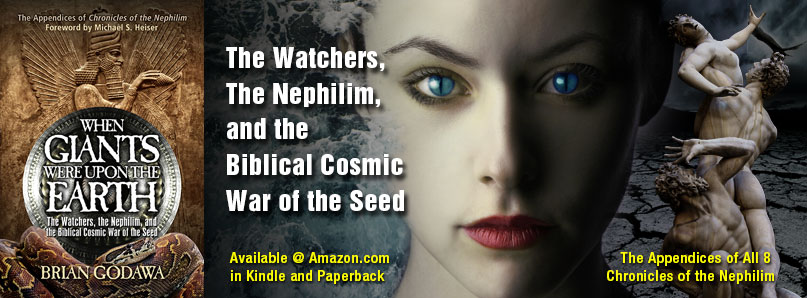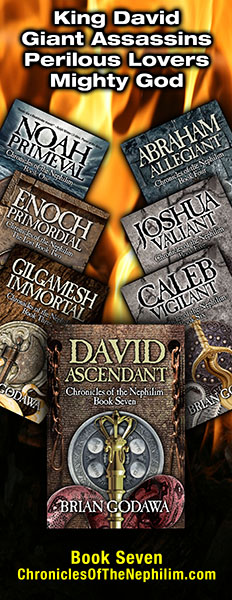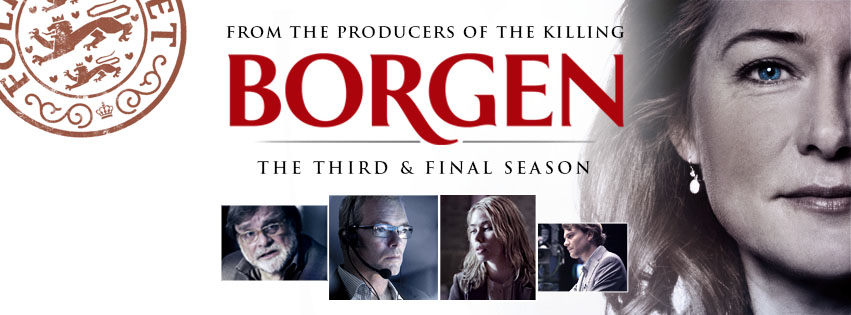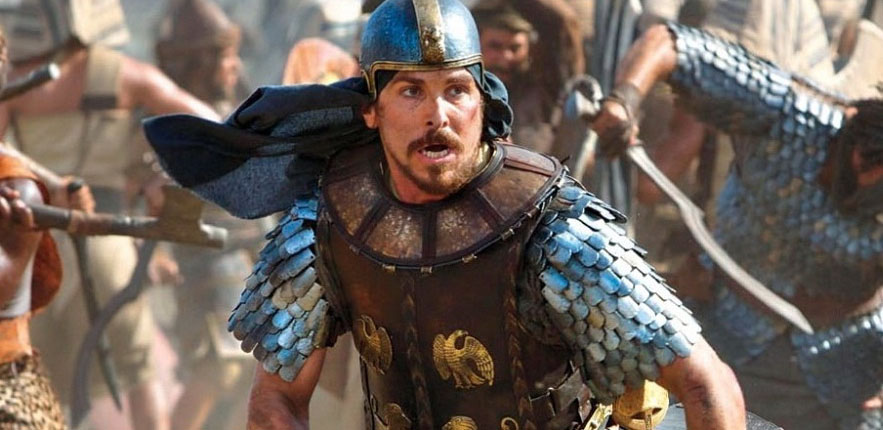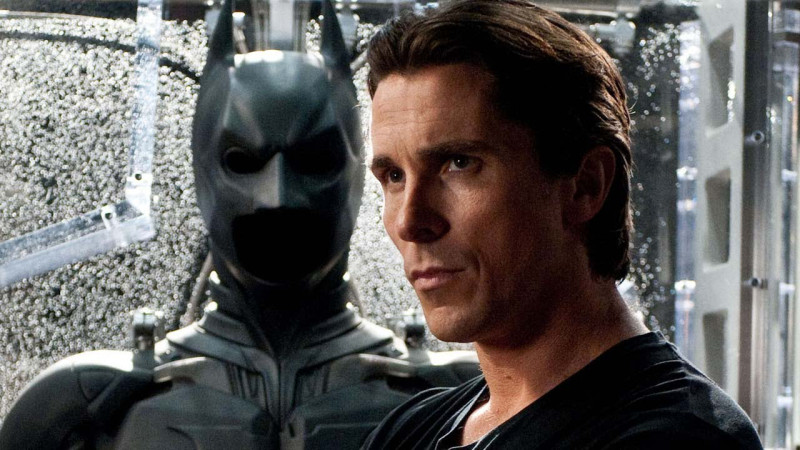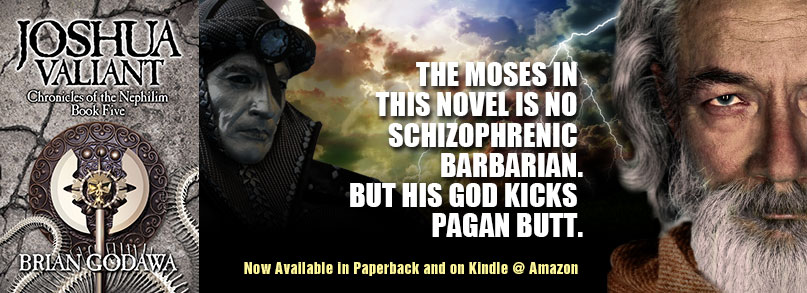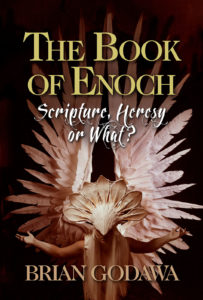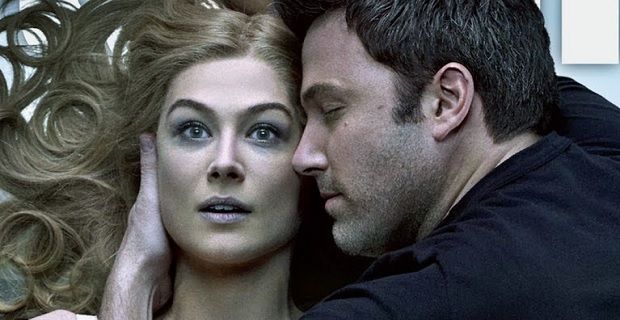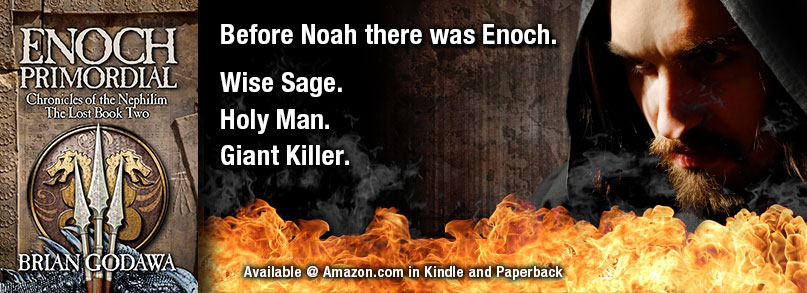Check page 60 for the feature on Brian Godawa:
http://www.joomag.com/magazine/christian-review-magazine/M0457831001414699003
Movies
Deliver Us From Evil: Muscular Spirituality Vs. Foolish Materialism
Maybe Deliver Us From Evil is just another demon possession movie that’s combined with a cop crime story.
But I doubt it.
Written and Directed by Scott Derrickson, this movie is inspired by the true story of Ralph Sarchie, a New York cop who encountered murders involving demon possession. He joins up with a Roman Catholic exorcist to solve the crimes, and in the process, he rediscovers his lost faith.
Okay, horror is not for everyone. But in this modern world that denies the supernatural, along with God, sometimes the best way to break through the rabid materialistic worldview of our culture is through horror. It’s a kind of apologetic that proves God by proving supernatural evil. If people believe there is a devil, it’s a pretty self-evident corollary that there is a God.
 What I like most about Derrickson’s cinematic portrayal of demon possession (This and The Exorcism of Emily Rose), is his understated realistic approach. He doesn’t rely on special effects gimmicks or make up that are impossible in the real world. The things that happen are mostly the kind of things that really do happen in demon possession cases. So no heads turning around or impossible levitations. Don’t get me wrong, there are contortions, dilated pupils, cuts appearing on bodies, and even preternatural strength and multiple voices. But these are all documented around the world to have occurred in such cases. He doesn’t “Hollywoodize” that stuff to an unbelievable extreme, which is what makes a lot of other demon movies just goofy. I’m not against adding fantasy or beefing it up if you are playing to certain genre demands. I’ve done so myself. But when you are dealing with true stories like Derrickson does, it makes it more scarier to be more realistic.
What I like most about Derrickson’s cinematic portrayal of demon possession (This and The Exorcism of Emily Rose), is his understated realistic approach. He doesn’t rely on special effects gimmicks or make up that are impossible in the real world. The things that happen are mostly the kind of things that really do happen in demon possession cases. So no heads turning around or impossible levitations. Don’t get me wrong, there are contortions, dilated pupils, cuts appearing on bodies, and even preternatural strength and multiple voices. But these are all documented around the world to have occurred in such cases. He doesn’t “Hollywoodize” that stuff to an unbelievable extreme, which is what makes a lot of other demon movies just goofy. I’m not against adding fantasy or beefing it up if you are playing to certain genre demands. I’ve done so myself. But when you are dealing with true stories like Derrickson does, it makes it more scarier to be more realistic.
Now, while I didn’t find this one as scary as say Emily Rose or other demon possession movies like Paranormal Activity or The Last Exorcism, it is still compelling with its share of frights and a couple of eerie shots that make your skin crawl. His demonic “floor scratching” sounds (a common element of the genre) are the scariest I’ve ever heard. Scariness can be a very subjective thing, and the more you’ve seen, the less seems scary. So if you don’t normally watch horror, this will probably be plenty scary.
What I really found fascinating was the priest who teamed up with the cop. The priest, Mendoza, breaks all the stereotypes of priests in movies. He’s young, not old; cool, not archaic, flawed, not holy, forgiven, not judgmental, and best of all, the wise mentor, not the fool. As Sarchie uncovers the spiritual reality behind the murders, he struggles with his own lost faith. But the essence of the spiritual battle is brought out with Christian clarity like I’ve never seen before in a horror movie. In one moment, the priest tells him something like, “You have seen a lot of evil in your job, no doubt. But that is secondary evil. But until you’ve seen primary evil, you do not know true evil.” And of course, demonic evil is primary evil.
 But the priest is not a false holy monk, either. He’s a real sinner, who sinned grievously AS A PRIEST. But what makes this portrayal so different from all the other movies that try to make priests out to be all secret adulterers and child molesters and hypocrites, is that this one shows a priest who confesses that sin and repents and turns back to God. That is grace. That is what the secular world cannot understand. Because Derrickson is a Christian, he can bring that kind of nuance and complexity to a spiritual character as flawed but heroic. This is the director that should be directing the next movie on King David, not another Hollywood secularist trying to subvert a sacred narrative.
But the priest is not a false holy monk, either. He’s a real sinner, who sinned grievously AS A PRIEST. But what makes this portrayal so different from all the other movies that try to make priests out to be all secret adulterers and child molesters and hypocrites, is that this one shows a priest who confesses that sin and repents and turns back to God. That is grace. That is what the secular world cannot understand. Because Derrickson is a Christian, he can bring that kind of nuance and complexity to a spiritual character as flawed but heroic. This is the director that should be directing the next movie on King David, not another Hollywood secularist trying to subvert a sacred narrative.
SPOILER ALERT: The priest explains that the cop must confess his sins because our unrepented sins are the dark secrets that supernatural evil can use against us. Wow. Only when Sarchie confesses his sins, is he “covered” by God’s power. This is all done in the context of Roman Catholicism, where Sarchie confesses to Mendoza, who then says, “I absolve you.” So anti-Catholics will not like this. Those less bothered by theological distortions, will argue that it WAS his experience that is the story, and the principle behind it is true, that confession of sins to God and forgiveness is our redemption and power to fight such primary evil (distortions notwithstanding).
Another problem as I see it with the genre is that demon possession movies all must end with the third act as the Exorcism sequence. This makes it so hard to come up with something new. Cause it’s usually a priest and others in a room repeating the exorcism ritual as the person manifests supernatural reactions. What have we not seen before? Many times movies try to outdo each other with more spectacular effects, but again, Derrickson does not bow to that cheap way out, though he certainly has a few goodies to offer.
Again, they use the Roman Catholic ritual of exorcism. Look, I realize that they do use that in real life, AND I realize it is more cinematic to engage in a ritual that has progression to it. But I’ve always hoped that people don’t think that recounting words like some kind of magic formula is how to fight a demon. In the Bible, it is the faith of the believer and his calling upon JESUS CHRIST to cast the demon out that does it (And this surely does occur at the end of the exorcism in the movie). But I’ve always been amazed at how in the New Testament, casting out demons was a relatively quick procedure, certainly not as dramatic for a movie. They would cast out in the authority of Jesus Christ, and BAM, they left. Now, Jesus does say that there are some tough cases that require prayer and even fasting. So there are more difficult cases to be sure, but it was not the norm in the first century.
I am studying a lot about Jesus’ ministry as an exorcist for my next novel, Jesus Triumphant, so it is going to be quite a challenge. The real question that many believers never explore is: Exactly what are demons? Everyone assumes “fallen angels.” But the Bible does not say that they are fallen angels, it just calls them evil spirits. Where do they come from? There is an interesting option not normally discussed among polite company. I will be dealing with that in a way I have not yet seen done. Unfortunately, you won’t know until next year, cause I have not written the book yet. But you can find out the theology of it all in my book When Giants Were Upon the Earth: The Watchers, The Nephilim, and the Biblical Cosmic War of the Seed, here on Amazon.
Controversial First Chapters of David Ascendant Now Online
You think you know the story of King David.
Wait till you read this.
You can read the controversial first chapters of David Ascendant online here. It’s the subscribe page, find the “Click Here for free David Ascendant chapters” at the bottom.
Then go pre-order it on Kindle here at Amazon.com.
Available in paperback this Saturday, Nov. 1.
Borgen: A Rare Honest Atheist Self-Reflection in a Godless Danish TV Show
I got caught up in the Danish TV Series Borgen (available on Netflix). It’s the story of Birgitte Nyborg, who becomes the Prime Minister of Denmark and how that position of power affects her personal and political life in both positive and negative ways. I tell people it’s like House of Cards, but without murder and cynicism. More like Naïve European Humanism J. In fact, I would have thought I would not like it, because I am usually bored and turned off by political preaching in movies and shows. Not only that, but this is an obvious Feminist AND Socialist narrative! But hey, I’m willing to admit great human drama and storytelling regardless of the agenda. And this is fantastic human drama and storytelling. (But beware, I did warn you)
Of course, they pretend to be “Center” in their depiction by making Birgitte a part of the “Moderates.” Though usually they are not, sometimes they actually are, such as her revelation that pulling out of Afghanistan would only worsen the violence and deaths (something our own king could learn from). One episode, they completely missed their own point when they showed the Prime Minister use private healthcare for her own daughter while hypocritically supporting their socialized system (“We don’t want to be like America”). Why? Because of the ungodly wait in line for rationed healthcare. Duh. Okay for the public, but not for us important lawmakers (I guess they are just like America after all). But she never changed her policy, and that showed that the storytellers wanted to “deal with the issue,” but never faced the consequences of their own argument.
The only thoroughly despicable person in the show, of whom it is assumed you can NEVER compromise with, is the leader of the Freedom Party, who is depicted in the worst stereotype of being a fat obnoxious pig with bad teeth. Can you guess what side the Freedom Party represents? No-brainer: The Far Right. Also, the show is very Politically Correct in that they never dealt with the raving Islamism problem in any of their episodes.
 One particularly repugnant moment of anti-Christian prejudice in the show was on an episode about two African parties at war over their country— actually, more like an Islamic party killing Christians who start to protect themselves, which is the actual scenario in Africa. Anyway, in order to make both sides have a negative aspect to them, the storytellers chose to have the Christian look all nice, but then have as his uncompromising agenda that the only ones who should not have rights in their country are homosexuals. And then he says “We have no homosexuals here” with a smile, thus revealing an oppression in denial. The tragic irony is that very statement in our real world came not from a Christian, but from Ahmadinejad, the head of an ISLAMIC country, Iran. So putting Islamic oppression into the character of a Christian is despicably dishonest and Christophobic. But that’s what you get from secular bigots.
One particularly repugnant moment of anti-Christian prejudice in the show was on an episode about two African parties at war over their country— actually, more like an Islamic party killing Christians who start to protect themselves, which is the actual scenario in Africa. Anyway, in order to make both sides have a negative aspect to them, the storytellers chose to have the Christian look all nice, but then have as his uncompromising agenda that the only ones who should not have rights in their country are homosexuals. And then he says “We have no homosexuals here” with a smile, thus revealing an oppression in denial. The tragic irony is that very statement in our real world came not from a Christian, but from Ahmadinejad, the head of an ISLAMIC country, Iran. So putting Islamic oppression into the character of a Christian is despicably dishonest and Christophobic. But that’s what you get from secular bigots.
Sorry, I had to get my rants about some of the political BS first.
The morality of the show is also very European and sadly alienating. Family is the least important of values to these people. But there is a bright shining ray of an adulterer who returns to his family, so it is not cynical. I think they were just depicting their reality, and the Danes accept it because of their godlessness. They don’t know any better, the poor secular socialists.
All that said, you might think I hate the show. But I don’t. Surprise, surprise. Why? Because the human drama and relationships are riveting with pathos. And watching Danish politics, as different from American politics as it is, is fascinating. It is well written, brilliantly cast, brilliantly acted, brilliantly directed. All human beings, regardless of their worldview leak God’s image through their work in the snippets of human truth they capture. For instance, there is a kind of moral lesson to observing the anatomy of the breakdown of a family in a tragic kind of way, even if these storytellers consider it acceptable “collateral damage” for Feminist victories and the great teat-sucking socialist state. We see Birgitte seeking to “do good” for her country, while she loses her marriage and family. In fact, the same thing happens to those in the newsroom covering the politics 24/7.
Also, there is a kind of realpolitik of compromise in that country because of their multiple parties that force them to negotiate in a way that American politics does not. Yet, even here, I found it ironic that the very thing that the politicians wanted, compromise, was NOT what the electorate wanted, because the thing that made Birgitte such a populist hero was precisely her standing out from the crowd by not playing the game and sticking to her uncompromising convictions. Hmmmmm. Maybe we’re not all that different. It’s a fair depiction of seeking to balance convictions with the reality of governing with people with whom you disagree. As Birgitte says to one of the radical Greens who challenge her, “You are the leader of the Green Party. I am the Prime Minister of a country that includes those who disagree with me.” Humans everywhere make backroom deals and negotiate for personal reasons as much as public ones.
KIND OF SPOILER ALERT: Anyway, the real reason that inspired this post was that the show is godless. God is nowhere to be found in this Danish story and their characters lives. It is quite empty. But near the very end of the last season, the heroine Birgitte discovers she may have breast cancer (Don’t worry, I won’t tell you if she does or if she does not and how it plays out).
 I just thought, that this scene of how she responds to the news was the most profound moment of the entire show, because it showed the real despair that atheist pursuers of “meaning” and “good” should really face about their delusions in light of the implications of their own worldview. It was like one spiritual glimpse behind the curtain of a very secular humanistic story. A shred of honesty in a godless world of self-deception. (I do not think the storytellers are intending a Judeo-Christian worldview in this revelation, because the whole of the show goes against it. I just think that even atheists can have a moment of honesty if they want to tell a good story).
I just thought, that this scene of how she responds to the news was the most profound moment of the entire show, because it showed the real despair that atheist pursuers of “meaning” and “good” should really face about their delusions in light of the implications of their own worldview. It was like one spiritual glimpse behind the curtain of a very secular humanistic story. A shred of honesty in a godless world of self-deception. (I do not think the storytellers are intending a Judeo-Christian worldview in this revelation, because the whole of the show goes against it. I just think that even atheists can have a moment of honesty if they want to tell a good story).
Of course, you won’t get the full impact if you haven’t lived with this character and with her victories and defeats, her gains and her losses, but I hope you can still pick it up. And don’t be fooled by vague references to prayer in the clip, that was just a colloquial blurt. It is more a metaphor for fate without a god, because there has been no spirituality the entire show.
Enjoy a rare moment of honesty from an atheist worldview…
New Exodus Movie: Moses as Schizophrenic and Barbaric? Uh oh, not again, please?
Okay, so I’m thinking, Steve Zaillian writing and Ridley Scott directing the new movie Exodus: Gods and Kings means that, though they are both agnostics or atheists, they are at least great storytellers who make movies that people actually see. You know, as in good stories. Maybe, just maybe, they won’t screw it up like Aronofsky did with Noah. The trailer already looks very cool showing some of the Ten Plagues.
But then again there was that “trick the Christians” Noah trailer…
Look, I’m not talking about ridiculous fundamentalist demands to reproduce the story as the Gospel according to the Ten Commandments starring Charlton Heston. That movie had tons of flaws to it and departed from the Bible at key points, yet religious movie watchers still loved it because it didn’t depart from the Biblical themes.
I am talking about the subversion of Judeo-Christian heroes and their stories with a secular agenda. I hope it’s not happening again.
Here is the Christian Bale quote about Moses from Christianity Today online:
“I think the man was likely schizophrenic and was one of the most barbaric individuals that I ever read about in my life,” the forty-year-old star said. “He’s a very troubled and tumultuous man who fought greatly against God, against his calling.”
Look, Bible heroes are NOT perfect sinless creatures. Only Jesus fits that bill. Yes, Moses murdered a man, and he had a character arc that went from being adopted and raised as a pagan Egyptian to a conversion to his troubled and tumultuous faith. He had difficulty trusting Yahweh. He didn’t want to be God’s spokesman because he stuttered. And he even had arguments with God.
But Schizophrenic? Barbaric? Really?
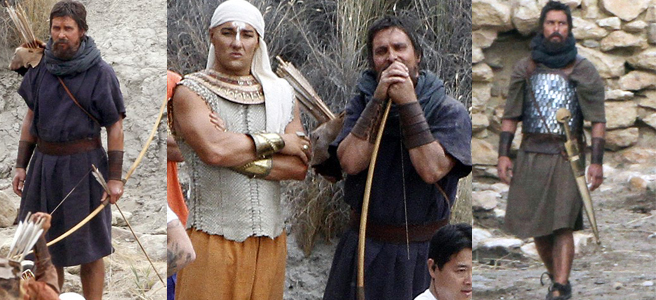
I don’t know. Look at him. Do you think he might also have sociopathic or pathological tendencies? A Moses with self-loathing Anti-Semitism?
First a Noah who is an environmentalist whacko vegan animal rights madman with delusions.
Now, a Moses who is a schizophrenic barbarian?
What next? A Jesus with Christophobia and bipolar delusions, who hates God, and wants to sin?
Oh wait, Scorsese already did that in the 80s and it flopped big time too. Whew.
I only hope that the comment is more a reflection of the actor’s own ignorant bigotry than of the actual movie.
But I’ll tell you on release week.
I pray it isn’t happening all over again.
UPDATE: Darrick reminded me: Then again, Ridley Scott did give us Jesus as an alien.
Not a good track record, there, either, brilliant studio execs.
P.S. I wrote a novel, Joshua Valiant, that tells the story of the conquest of Canaan after the Red Sea event, and I have a very human, very flawed Moses and Joshua in a very brutal world — with plenty of Biblical sex and violence — and gritty real faith. Check it out here.
Fury: War and Evil Through the Eyes of Manly Christianity
Maybe Fury is just another guys’ violent war movie about how war is hell.
But I doubt it
Fury is a war movie about a tank squad rumbling through the German countryside, killing SS and German soldiers near the end of World War II.
But it is so much more.
Battle movies can actually be quite boring if they reduce to guys spouting jokes and ironic lines as they move from battle scene to battle scene. But Fury does not degrade into that. Brad Pitt as the leader of the squad, “Wardaddy,” does a great job with a lead character that is otherwise a bit thin on development. The “new guy” protagonist, Norman, is an archetype of the innocent inexperienced soldier who comes of age in a brutal world. He struggles with his first kill, helped by Wardaddy, and has to grow up fast by accepting the tragic reality that whatever he does or doesn’t do directly affects the survival of his comrades in arms. So, when Norman is forced to kill his first SS captive, he balks and says it isn’t right. Wardaddy explains that it isn’t about right and wrong, it’s about survival against soldiers who will kill you if you do not kill them first. This is not a brutish denial of morality, but rather a simplified way of explaining the hard reality that when evil people seek to kill you, if good men do not kill them first, then evil will prevail. Sound at all familiar with the terror of today? At another moment, Wardaddy says to Norman the theme of the film, “Ideals are peaceful, history is violent.” It seems that to Wardaddy, it is the soldier’s sacrifice that builds the freedom upon which normal citizens can have the luxury to moralize.
In another memorable scene, Wardaddy and Norman find an apartment with a lady and her young daughter (or niece. I can’t remember). Wardaddy cleans up and has the women make them a home cooked meal in a tension filled metaphoric attempt to experience that semblance of civil society that they had to give up to fight the war. Wardaddy also keeps his more animalistic members of the squad from raping the women. It showed the human decent side of a harsh leader that seeks to keep the goodness of what they fought for in his memory.
One word: Profound.
 But what moved me most about the film was Shia LeBeouf’s stellar performance as Boyd Swan, a Bible believing Christian. It’s been a while since I’ve seen a real manly Christianity in a Hollywood movie like this. Normally, they are Roman Catholic or other mainline denomination, which are more safe characters to play. But such Protestants or Evangelical Christians are usually portrayed as nutballs, murderers and hypocritical leches. Three cheers to Director David Ayer for finally portraying an Evangelical Christian with positive rigorous and manly vigor!
But what moved me most about the film was Shia LeBeouf’s stellar performance as Boyd Swan, a Bible believing Christian. It’s been a while since I’ve seen a real manly Christianity in a Hollywood movie like this. Normally, they are Roman Catholic or other mainline denomination, which are more safe characters to play. But such Protestants or Evangelical Christians are usually portrayed as nutballs, murderers and hypocritical leches. Three cheers to Director David Ayer for finally portraying an Evangelical Christian with positive rigorous and manly vigor!
Shia’s wordless looks alone stole the movie and said more than all the words being tossed around between the men. Not once was Boyd mocked by the storyteller. Oh, sure, his buddies in the story mocked him playfully, but in the end, they all respected him and his convictions. There is even a theological discussion about God’s love in relation to evil men like Hitler, and I could not believe that the issue was wrestled with honestly and with integrity unlike what I have seen before in a war movie (Other than To End All Wars). It showed that clearly the writer director was a Christian because it showed a nuance and depth unseen in other movies by non-Christian storytellers who observe faith from a distance without understanding.
There is a moment the night before the men face their ultimate battle. It is the “dark night of the soul” moment in the story. Boyd mentions a Bible verse that led him into the war, “And I heard the voice of the Lord saying, “Whom shall I send, and who will go for us?” And then Wardaddy finishes the verse, saying, “Then I said, “Here I am! Send me. Isaiah 6:8.” And we see that Wardaddy is not as cold and cruel and cynical as he appears on the surface. There is more to what we see here than a brute fighting machine.
The men all share a “Last Supper” of sorts with a drink of bourbon and a smoke. It is a holy moment as they face their sacrificial impossible last fight. The men are not unscathed by the horrors of war. They have all been damaged, and the faith of Boyd deals squarely and honestly with that reality. It doesn’t devolve into a blinded ideological denial.
 But the point is that rather than making faith at odds with the war, as an unlivable contradiction, or even as something to be mocked as an oddity of personality in one of the characters, the Christian faith of Boyd actually becomes the thing that gives true spiritual depth to the meaning and sacrifice of the story. Without Christianity, war is senseless survival of the fittest with death upon death. But only with Christianity can the purpose of fighting transcend mere will to power and give meaning to the notion of good fighting for justice in an evil world. It isn’t easy and it doesn’t give all the answers, but it is a muscular faith that faces the gritty real world.
But the point is that rather than making faith at odds with the war, as an unlivable contradiction, or even as something to be mocked as an oddity of personality in one of the characters, the Christian faith of Boyd actually becomes the thing that gives true spiritual depth to the meaning and sacrifice of the story. Without Christianity, war is senseless survival of the fittest with death upon death. But only with Christianity can the purpose of fighting transcend mere will to power and give meaning to the notion of good fighting for justice in an evil world. It isn’t easy and it doesn’t give all the answers, but it is a muscular faith that faces the gritty real world.
The writer director David Ayer is my new storytelling hero.
The Book of Enoch: Scripture, Heresy, or What?
Many Christians are afraid to attribute truth value to ancient books outside the canon of the Bible. They fear that somehow the authority of Scripture will be compromised or worse, other texts may be falsely considered as Scripture. The book of 1 Enoch is one of those controversial books that has a long history of squabbling over its veracity and influence on Bible interpretation. This free paper I wrote is an introduction to the ancient book of 1Enoch, its content, its history, its affirmation in the New Testament, and its acceptance and rejection by the Christian Church.
https://www.academia.edu/8811960/The_Book_of_Enoch_Scripture_Heresy_or_What
You can buy my lecture on the Book of Enoch online download, or, DVD or rent at Amazon.
The Equalizer: Cathartic Violence in an Unjust America
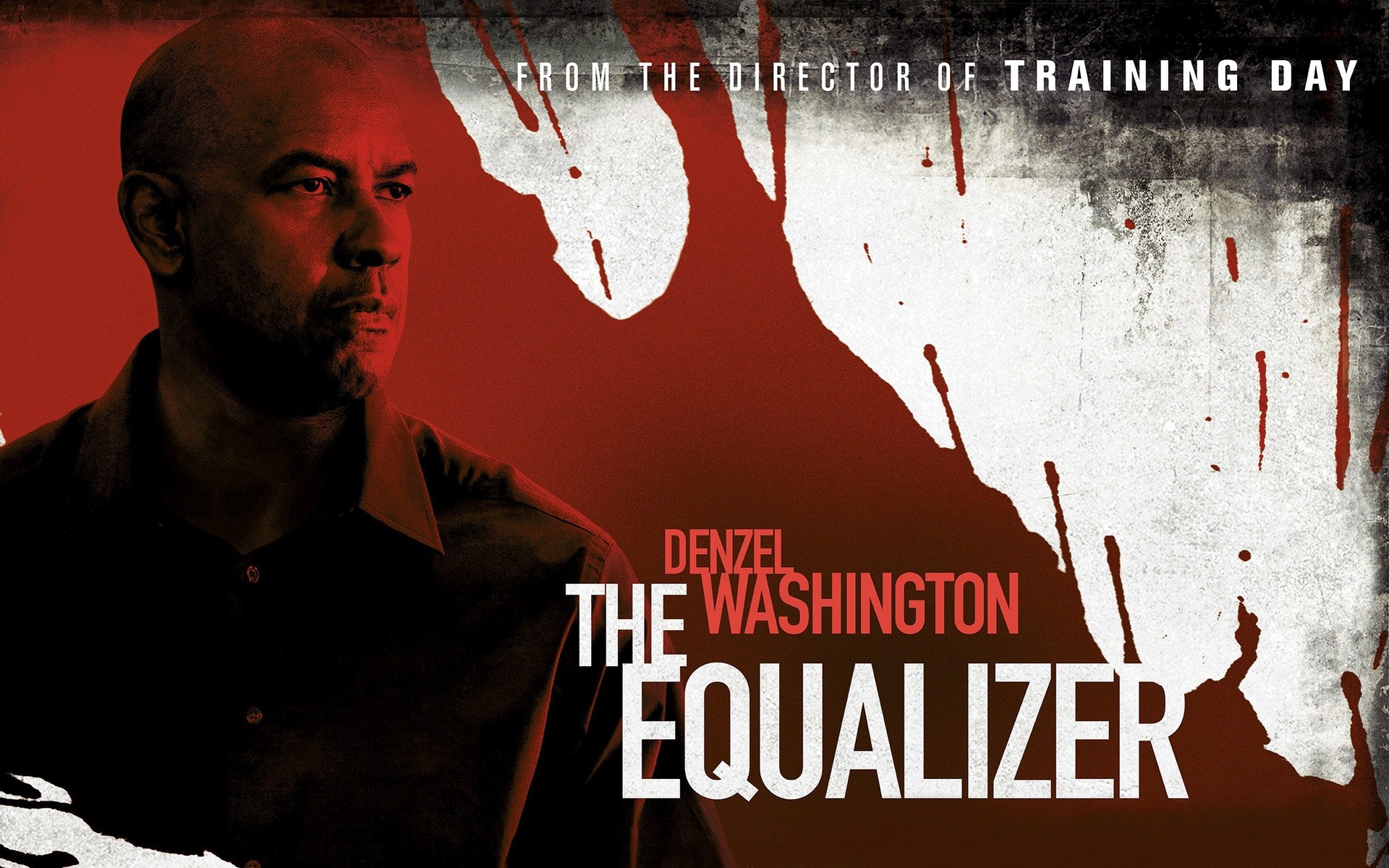
Maybe The Equalizer is just a violent guys vigilante revenge flick.
But I doubt it.
I saw this a week or so ago. But it’s been on my mind a bit because it was such a good story. It got me thinking about vigilante movies and why they are so emotionally moving.
The story is about Denzel Washington as Robert McCall, an ex-CIA killer, who has gotten out of the Company, and is trying to live a normal life as a blue collar worker at a Home Depot like company. He lives alone and has OCD, which makes him a little too orderly, but without losing his friendliness for people. Denzel meets a young hooker, played my Chloe Grace Moretz, at the diner where he reads a book. Of course, he is an honorable guy and tries to inspire her to leave her world and live a better life. He tells her something to the effect of “We can do anything we choose to do to make our lives better.” She is abused by her pimps, who are Russian mob and so Robert tries to “buy her freedom.” He goes to the headquarters of the Russian mob and offers them all the money he has, $9800 to let her go. They laugh at him, and then attempt to put him out of his misery.
They should not have done that.
Robert kills them all, which starts a hunt by the big boss of those bad guys, and well, you know the rest. It’s all very formulaic. But it’s fantastic. I have written about revenge movies and vigilante violence as being immoral in posts on The Punisher, Walking Tall and Sin City, and my most detailed in reference to A Time To Kill. In Man on Fire Denzel’s character learns that he can only save the innocent with self sacrifice not revenge, which is also an ironic challenge to vigilanteism.
But what makes this a great moral movie is how they play Robert’s approach. He is not a vigilante killer who goes around and kills people he thinks deserves to die outside the law. He actually offers evildoers a face to face opportunity to right their wrong or to repay their victims. He confronts them with their sin and challenges them to repent. Then he only takes them out, when the bad guys, who obviously laugh at him and never repent, then try to hurt or kill him. So he is actually acting in self defense, which is completely legal and morally justifiable.
At one point we see that Robert is reading Don Quixote, and he says something like, “it’s about a knight in a world without chivalry,” which is clearly the theme of this movie. We have lost our heroic chivalrous nature because of our corruption.
It got me thinking: Why are vigilante stories so powerful? Why do they draw us in with such a strong cheer for the hero? It’s not because we just like to see violence. I believe it is because they are cathartic in giving us stories of justice in a society where justice is blocked by corruption. When our own society becomes so corrupt and unjust, normal law abiding citizens become so saddened and frustrated with the evil that goes unpunished. We long for justice that is not being served. So vigilante movies (And again, The Equalizer is not the immoral vigilante type) serve to satisfy that desire that evil will be punished.
And then I realized why this movie is so timely and resonant. Right now, we live in a society of widespread injustice and increasing polarization. Liberals say we have an unjust racist society, conservatives say we have a society that is peddling false racism as a dog whistle that creates reverse racism and justification for racist knockout games, flash mobs and riots. Liberals say we are denying global warming, conservatives that we are denying Islamic terrorism. Liberals say we need Big Government because we are so unjust, conservatives say we have a corrupt unjust Big Government with a president who is violating the constitution with Executive Orders, and using the IRS and FBI to persecute his political enemies and influence elections. Liberals would say our laws are unjust regarding immigration and gun control, conservatives would say we have a corrupt Department of Justice and a criminal racist Attorney General who violated the laws he swore to uphold with racist policies, defiant non-enforcement and criminal conspiracies like Fast and Furious. Both sides warn of increasing militarized police.
What do you think?
Maybe The Equalizer is just a violent guys vigilante revenge flick.
But I doubt it.
Gone Girl: Cynical Feminism Come of Age
Maybe Gone Girl is just a twisty “artistic” thriller.
But I doubt it.
Watching the first half of this movie has all the hallmarks of a good David Fincher directed thriller. Ben Affleck as Nick Dunne arrives home to discover his wonderful wife, Rosamund Pike as Amy is missing and there is little evidence of it being foul play. Ah, but there is a little evidence and it begins to mount in the direction of Ben’s guilt. We hear the thoughts of Ben Affleck as he caresses his wife’s head in a flashback with the double entendre allusions to him wishing he could crack open her head so he could understand the way she thinks. Okay, pretty on the nose, but makes the point of a good thriller that we must not be sure of the hero’s innocence.
It is not until the midpoint big twist of the movie that we begin to see this is not a standard thriller, but a “statement” about modern marriage, because characters begin to make unbelievable choices and the plot conveniently twists in additional unbelievable ways, all in the support of the storyteller’s “message” they are apparently trying to make.
SPOILER: Okay, look, I’m not interested in writing movie reviews. I want to talk about worldviews and meanings of movies and how they affect our lives. So I have to spill the beans. So don’t read me for movie reviews anyway.
Amy is a trust fund princess and Nick, the fast talking alpha male to replace her controlling parents. At the halfway point, we discover that Amy has constructed the entire scenario to look like a murder, so that she could punish Nick for losing his job and therefore self-worth and for his secret adultery on the side. Amy is on the run hiding her identity and even plans to kill herself originally, all to get back at Nick for ruining her life (a common feminist interpretation of how male dominance leads women to self-destruction). Nick gets a hot defense attorney and they begin to play the media image as they try to find Amy. Meanwhile, Amy ends up at the hideaway of a past stalker who was obsessed with her and is now rich himself. He is still obsessed with her and seeks to “help her” by controlling her and turning her into his puppet of pleasure, barefoot and lingerie laden at home. She finally plots another frame up of this creep and murders him.
There is a truth that Dennis Prager writes about and talks about on his Male/Female Hour on the radio. Feminists, egalitarians, leftists, metrosexuals, and other Christophobes will HATE me for saying this truth. But it is how God made us: What a woman most wants is to be loved by a man she admires, and what men most want from the woman they love is to be admired. What is a simple truism for those of us happily married (and not), becomes a kind of natural law against which this story struggles with all its soul like a rat trying to claw its way out of a cage.
Watching this movie, one can feel the palpable hatred that the storytellers must have for traditional marriage, seeing it as an oppression of women under the thumb of men who use them for their own pleasure and prop up of worth, while it smothers their own self worth. It depicts a marriage that starts out like all marriages, happy and blissful, but then over time, it dies down and crumbles. In this worldview, men are simple pigs who see women always in sexual terms and can’t pick their own ties. Women ruin themselves, just like Amy, by their desire to have a man to admire, so they try to create that man by picking his ties and put aside their own worth to try to prop him up. Can anyone blame Amy’s lack of choices by running from the slouch loser of Nick to the help of her past stalker, who is himself a cliché of controlling women through a patriarchal protection that is actually sick and twisted?
Like all good stories, Gone Girl tries to throw in some opposites for good ambiguity. So a male/female pair of grifters rob Amy when she is on the run, and they appear to be led by the woman, not the man. But then again, the man is a lowlife male who is easily manipulated into such things, another cliché of feminist narratives, just like Nick and just like the stalker. Men are easily manipulated because they are driven by their little heads. We also discover that another guy was unjustly indicted for rape charges by Amy in college because he didn’t turn out to be what she wanted. So she is a sociopath, but a sociopathic expression of a value in our society. But in this story, it seems that is what it takes to make the marriage “work.”
Families don’t get a good shake in this film. Amy’s parents use her as their story source to make millions writing children’s stories. And then borrow away the trust fund money they saved for her out of their guilt. The local woman with multiple children is the “stupid pregnant woman” that Amy manipulates to achieve her deception. And in the end, Amy comes back to Nick and offers him the opportunity for them both to stay together. She does this because she “falls in love” with him again when he pleads with her on national television with a secret message. He becomes that man that she can admire again.
The obvious absurdity that the storytellers have to get us over: Who would possibly reunite with a murderer sociopath? You’re right. No one in their right moral mind would.
In the end Nick chooses to stay with Amy and live the lie! The fact that she is a deluded scheming murderer is overridden by the fact that their marriage gives them both what they need, for her, an alpha male to admire, and for him, a woman who would do anything for his acceptance. I think this is a black comedy of sorts because that choice is CLEARLY NOT the right choice morally and therefore unsatisfying for those who want justice to prevail in a story. But that is the point of black comedies that show darkness win, I think the storytellers are trying to make the point that staying together in marriage with these beliefs requires the subjugation of a woman’s identity to a man’s strength that will drive her to do evil things to maintain that value.
It’s possible that the author is trying to show that our male and female natures taken to an extreme can become self-destructive. But if that is the case, then I think the story fails because it does not depict a proper balance of those natures against which to judge the extreme. The result of this kind of one-sided depiction is a generic statement about those natures as being all bad.
I am a sinner who needs God’s grace daily, and I don’t have a perfect marriage. But I can say that a happy marriage is not achieved by turning men into women (ie: metro girly men), or by demanding egalitarian equality of power (which is itself power-driven), or by denying our male and female natures (which is self-delusion). Rather, it is achieved through self sacrifice and dying to one’s self. It comes from a woman being loved by a man she admires and by a man being admired by the woman he loves.
Maybe Gone Girl is just a twisty “artistic” thriller.
But I doubt it.
Enoch Primordial on Sale 99¢
Only 99¢ – Enoch Primordial on Kindle by Brian Godawa.
Chronicles of the Nephilim Biblical Fantasy Saga.http://amzn.to/1mJwHe4



